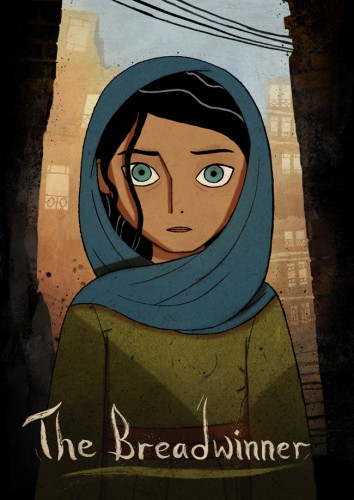Recently, I met up with Dr. Shanta Devarajan and his wife Dr. Nancy Benjamin in Waterford City on their recent trip to Ireland. Shanta is MENA Chief Economist at the World Bank and Nancy is Senior Economist also at the World Bank.
I arranged to meet up with Shanta after interviewing him on the Economic Rockstar podcast when he informed me of his trip. Shanta and Nancy were travelling by coach from Cork City to Kilkenny City and were making a 1-hour stop in Waterford City. It was a beautiful day in August and the sun was shining and the temperature was such that we decided to sit outside for lunch at The Granary Cafe.
Shanta and Nancy both had a Chicken and Bacon Caesar wrap with Shanta deciding on an Americano and Nancy on a bottle of still water. I personally went for a fruit scone and an Americano. While relaxing outdoors, we were greeted by the soothing shelther of a sapling and comforted by a genial gentle breeze.
This differed to my previous remote meeting with Shanta, which took place on a Skype call – he in his office in Washington DC at 4pm EST and me in my home in Portlaw, Co. Waterford at 9pm Irish time. It was an audio-only interview so we didn’t see each other. The conversation flowed but within the realm and restrictions of economic themes.
Our conversation at The Granary Cafe was quite mixed. We spoke about economics (of course!), the Economic Rockstar podcast, some guest recommendations for the show by Shanta (Patrick Honohan and Chris Blattman) and about Irish animation studio Cartoon Saloon. Yes, you read that correctly – Cartoon Saloon!
 Why did three economists have a conversation about Cartoon Saloon? Well, we found out that we are all in some way connected to Cartoon Saloon – or more accurately the story behind their animated film ‘The Breadwinner’ (being produced by Aircraft Pictures, Cartoon Saloon and Melusine Productions).
Why did three economists have a conversation about Cartoon Saloon? Well, we found out that we are all in some way connected to Cartoon Saloon – or more accurately the story behind their animated film ‘The Breadwinner’ (being produced by Aircraft Pictures, Cartoon Saloon and Melusine Productions).
My brother, multi-award winning animator, Rory Conway is employed by Cartoon Saloon and is part of the animation team behind this feature-length film. Angelina Jolie Pitt is Executive Director and her production company Jolie Pas Productions will join forces with Cartoon Saloon to make this a super-awesome and award-winning team.
Both Shanta and Nancy were on their way to Kilkenny City and visiting the beautiful and awe-inspiring Kilkenny Castle. For the summer of 2015, Rory was artist-in-residence at Kilkenny Castle where he showcased Cartoon Saloon’s recent feature length movie ‘Song of the Sea’. Shanta and Nancy met Rory there, where he divulged everything about this movie from idea generation to character design.
Okay! The connection hasn’t be fully made just yet. Shanta, Nancy, myself, Rory, Cartoon Saloon, The Breadwinner, Angelina Jolie Pitt and economics? I understand if you’re confused right now, but allow me to explain.
During our conversation, we chatted about The Breadwinner (written by Deborah Ellis), a story about a young girl from Afghanistan who must disguise herself as a boy in order to earn money for her family. Nancy had mentioned the work done by an investigative journalist who had discovered the lives of young Afghan women after they had lived and behaved as young boys during their childhood and adolescence. Nancy explained how families with only girls and no boys would feel a sense of shame and embarrassment in society. This social stigma is typically avoided when a girl from the same family is chosen to dress-up and behave as a boy. The girl has her hair cut short and takes on a male name.
Digging a bit deeper on the internet about this phenomenon, I came across the term ‘Bacha Posh’ to describe these Afghan girls living as boys. Jenny Nordberg, investigative journalist, was the first to use Bacha Posh to describe these girls since this practice didn’t even have a name. Jenny’s breaking story in The New York Times revealed this practice to the rest of the world and subsequent dedicated research by her culminated into a fascinating and must-read book titled ‘The Underground Girls of Kabul’. Jenny Nordberg reveals so much about these girls during and after their livelihood as boys. She exposes gender inequality, powerlessness and resistance.
Dressing these girls as boys is not to deceive society. But the belief is that a Bacha Posh, as she becomes known, will bring some ‘fortune’ to her mother in a later pregnancy where it is hoped that a boy will be born. A Bacha Posh does not take on the role of a boy or a girl, but has some intermediate status. She will not cook and clean (like all males) and she can attend school and work (unlike all females). The remaining females in her family can be escorted by her – a task strictly reserved for males. These girls performed better in all aspects of education than other girls in society due to their schooling opportunities.
A Bacha Posh must revert back to her female ‘status’ once she reaches puberty or when she marries. However, the sense of empowerment, the freedom, the rights and the opportunities enjoyed by these young girls and women is too invaluable to give up. Having an experience of what should be a right to all women is a difficult thing to give up – being replaced with a life of oppression, zero rights and a slave-like existence.
The 5 years of research and interviews that Jenny Nordberg conducted to investigate the lives of Bacha Posh have shown that the reversal of social status experienced by these women can lead to irreversible psychological effects. They must take on the persona of the traditional Afghan woman and displace the once coerced mannerisms of a boy and all the ‘social fortunes’ that came with their ‘male-like’ status. Also, the sense of freedom and opportunity provided to these women shines light on the inequality that exists at a basic human level. Such controversial treatment of women in Afghanistan has led to a surge of activity in women’s rights movements there.
Novelists like Deborah Ellis, investigative journalists and authors like Jenny Nordberg, women’s rights activists like Angelina Jolie Pitt and animation studios like Cartoon Saloon are a powerful force when they shine light on the oppression and restrictions faced by Afghan women. They educate us through facts, imagery, art, visual expression, color, sound and a theme that many feel they could possibly relate to – a struggle against oppression and an authoritative regime, and the fight for survival and self-empowerment.
The people behind The Breadwinner, are setting themselves up to be an impressive and potent combination that could possibly re-write the history books in Afghanistan and for women’s rights everywhere. The Breadwinner depicts the life of a Bacha Posh in such a compelling way – a story of oppression and self-empowerment. A story of Parvana, “a young girl living under the Taliban regime in Afghanistan, who must disguise herself as a boy and become the breadwinner of the family when her father is unfairly imprisoned”. The Breadwinner also celebrates the culture, history and beauty of Afghanistan.
It’s amazing how a conversation over a cup of coffee could result in an urge to write this post and how people are somewhat connected by a story – a story of Parvana, the protagonist in The Breadwinner and a symbol of survival, hope, and empowerment through imagination.
Young girls everywhere, even those in developed countries like Ireland, the UK and the US, should read Parvana’s story and watch the movie upon its release. They should take away from it the themes of oppression and self-empowerment.
Parvana must be your heroine, symbolizing the determination and the willingness to succeed in a world lacking opportunity. You must reflect upon their own position in society, in school, in your home and in the media. When someone says that you should not hold a hammer, learn computer coding, play in the mud or open up an old computer and mess with the memory board because ‘you are a girl’, then think of Parvana and all the young girls and women like Parvana today and in the past who have fought for equal rights. Stand up for your rights, empower yourself with imagination and dream of your goals, irrespective of what anyone says, and strive toward making your dreams a reality.
The Breadwinner will win an Oscar once released in 2017. But the greatest accolade that will be bestowed on all involved in the creation of this film will be the knowledge that they will empower women, not only in Afghanistan but throughout the world, giving them strength to fight for their rights and equality. You’ve read it here first on Economic Rockstar – The Breadwinner will be a deserved winner of the Nobel Peace Prize and Jenny Nordberg deserves her place as an individual recipient of the Peace Prize too. Just like Malala Yousafzai, the 2014 Nobel Peace Prize recipient who is fighting for girls’ right to education in Pakistan and beyond, and who suffered an attack on her life by Taliban gunmen in doing so, Pavarna will be the fictional heroine of the oppression suffered by girls in Afghanistan and beyond.
Oh, by the way, a group of people can win the Nobel Peace Prize. Don’t believe me? Check out episode 036 of the Economic Rockstar podcast with Professor Jason Shogren who was a member of the Intergovernmental Panel on Climate Change (IPCC), joint recipients of the Nobel Peace Prize in 2007 along with Al Gore.
Links:
Jenny Nordberg: www.bachaposh.com
Deborah Ellis: www.deborahellis.com
Cartoon Saloon: www.cartoonsaloon.ie
Economic Rockstar: www.economicrockstar.com
Books:
The Underground Girls of Kabul: In search of a hidden resistance in Afghanistan by Jenny Nordberg
Read an excerpt from Jenny’s award-winning book here.
The Breadwinner by Deborah Ellis


 169: Jennifer Murtazashvili on Democracy and Informal Order in Afghanistan and Uzbekistan
169: Jennifer Murtazashvili on Democracy and Informal Order in Afghanistan and Uzbekistan How to set up your Blog in minutes with Bluehost!
How to set up your Blog in minutes with Bluehost! 153: Sarah Skwire and Steve Horwitz on Their Writing Approach, Advice, Habits and Struggles
153: Sarah Skwire and Steve Horwitz on Their Writing Approach, Advice, Habits and Struggles Protected: Bitcoins as Discussed by Bitcoin Girl, Naomi Brockwell, in Episode 009
Protected: Bitcoins as Discussed by Bitcoin Girl, Naomi Brockwell, in Episode 009 174: Wendy Carlin on The Core Project, Capitalism, Democracy and Normative Statements
174: Wendy Carlin on The Core Project, Capitalism, Democracy and Normative Statements How to Calculate Statistics Using Excel
How to Calculate Statistics Using Excel Fundamental Analysis of Tesco and Facebook: A Case Study
Fundamental Analysis of Tesco and Facebook: A Case Study The Maths Factor: Give the Gift of Math
The Maths Factor: Give the Gift of Math 038: Leah Bell on Being an Angry Grad and Setting Yourself Up for a Life of Success
038: Leah Bell on Being an Angry Grad and Setting Yourself Up for a Life of Success 116: Brian O’Roark on The Economics of Superheroes and The Hunger Games
116: Brian O’Roark on The Economics of Superheroes and The Hunger Games